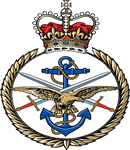Commemorated: | |||
| 1. Memorial: | Basra War Cemetery | IV. B. 8. | |
| 2. Book: | The (1921) Masonic Roll of Honour 1914-1918 | Pg.132 | |
Awards & Titles: | |||
Service Life:
Campaigns:
- The First World War 1914-1918, World-wide.
| Unit / Ship / Est.: Inland Water Transport |
| Action : Mesopotamia |
At the outbreak of war the British, together with Indian troops, resolved to protect oil supply in the region by occupying the area around Basra at Abadan. This evolved into a series of campaigns towards Baghdad against the Turkish forces as Mesopotamia (modern Iraq) was part of the Ottoman Empire. Meetings in late 1914 and into 1915 led the Viceroy and Indian government at Simla to reconsider the limited involvement of troops and they decided to order further advances with a view to securing the Shatt-al-Hai, a canal connecting the Tigris and Euphrates river and potentially capturing Baghdad. The British government disagreed and wished to conserve forces for the Western front. The Viceroy was given permission to act as it wished, but told in no uncertain terms that no reinforcements should be expected.
The initial success experienced by the British and Indian forces quickly disintegrated in the face of Ottoman opposition. The Siege of Kut-Al-Amara began on 7th December with the besieging of an 8,000 strong British-Indian garrison in the town of Kut, 100 miles south of Baghdad, by the Ottoman Army. These campaigns produced few tactical benefits, indeed the catastrophic defeat at Kut in 1916 was a major setback. Badhdad was eventually taken in March 1917.
The conditions in Mesopotamia were dreadful. The climate, sickness and disease produced large losses in addition to battle casualties. About as many men died of disease as were killed in action. The Mesopotamia front was part of a strategy hoping for success at lower cost than the Western Front but no decisive victory was achieved.
Detail :
The Bedfordshire Times and Independent of the 3rd August, 1917 publish the following story: " AMPTHILL. In connection with the B.W.T.A., a meeting was held in the grounds of Clyda, Ampthill by permission of Mr. Feasey, the Chairman being the Rev. W. Westlake, and the speaker Mrs. Bert. Tomlin (of Luton). Great regret was felt on Wednesday on receipt of news that Capt. T.F. Perrin had died, it is believed, as a result of fever, in Mesopotamia. The deceased gentleman came to Ampthill several years ago, and lived on the Dunstable-road with his sister, Miss Perrin. He was slightly over military age, and had been a captain in the Royal Engineers. Soon after the outbreak of war, Mr. Perrin volunteered, joining the Inland Transport Corps, R.E. He died on July 24th at Basra. He was well known, and popular in connection with cricket and other local sports."
A separate article appeared three days earlier in the Jersey Evening Post on Tuesday, 31st July, 1917: "Roll of Honour. We regret to record the death which took place in Mesopotamia on Tuesday last of Captain Thomas Frederick Perrin of the Royal Engineers. The deceased gallant officer who had been serving in the East for some time was the eldest son of Mr Thomas Perrin and the late Mrs Perrin (nee Le Quesne), he was also a nephew of Dr E J Le Quesne of Havre des Pas. We tender the relatives our heartfelt sympathy in their bereavement."
Masonic :
| Type | Lodge Name and No. | Province/District : |
|---|---|---|
| Mother : | Whitgift No. 3617 E.C. | Surrey |
| Joined : | Ampthill No. 2490 E.C. | Bedfordshire |
Initiated | Passed | Raised |
1st February 1913 | 3rd May 1913 | 11th June 1913 |
Listed as a 41 year old merchant from Ampthill at the time of initiation in 1913. He has at least two years war service recorded in his line of the contribution register, which is closed out by "Died 24.7.17."
Source :
The project globally acknowledges the following as sources of information for research across the whole database:
- The Commonwealth War Graves Commission
- The (UK) National Archives
- Ancestry.co.uk - Genealogy, Family Trees & Family History online
- ugle.org.uk - The records of the United Grand Lodge of England including the Library and Museum of Freemasonry
Additional Source:
- Founder Researchers : Paul Masters & Mike McCarthy
- Researcher : Bruce Littley

